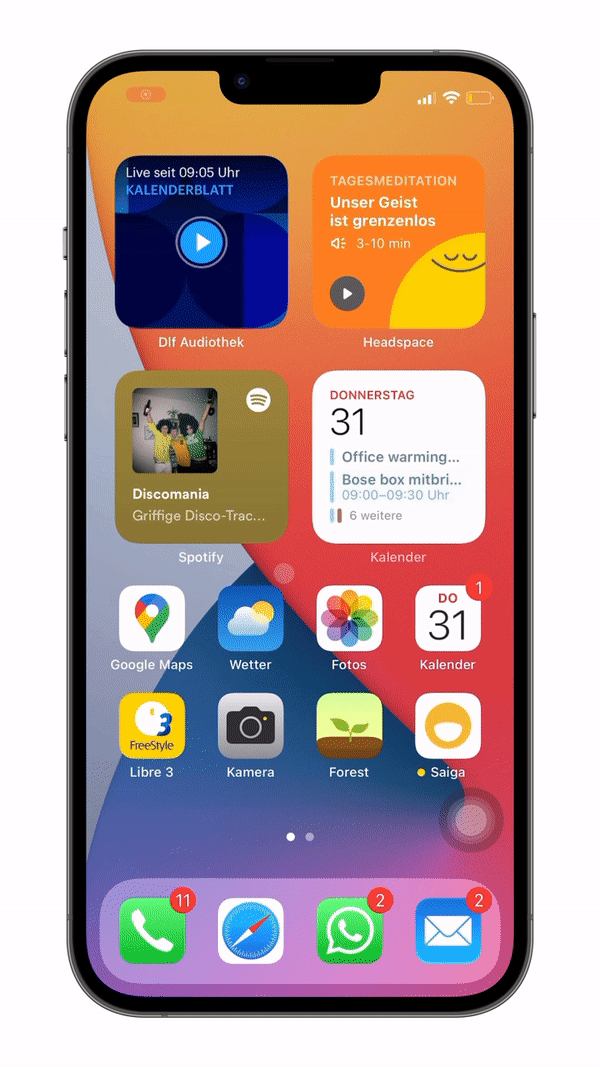It’s 5 p.m. on a Tuesday, and you’re running late for a flight to a corporate conference. While stuck in rush-hour traffic, it occurs to you that you’ve forgotten to book a babysitter for the kids — and find a restaurant for the team outing scheduled toward the end of your trip.
Instead of completing the tasks yourself, it’s Karl Moritz Hermann’s hope that you’d turn to Saiga, a new virtual concierge service, for a helping hand — or several. Hermann started Saiga in an effort to create a tool that could “do everything as [long as] it’s (a) legal and (b) doesn’t require a physical presence,” he explained to TechCrunch last week via email.
“Our users interact with Saiga via an app as the primary interface, where they have a chat-like interface for each task. The chat is enriched with interactive proposal cards to improve the experience and allow faster decision-making on part of our customers,” Hermann said. “We do what’s important, not what’s urgent.”
Countless startups have attempted to deliver on the vision that Hermann describes. Magic Assistant, perhaps the most infamous, promised to order, reserve, or facilitate practically anything on behalf of customers who text-messaged its assistants. It took years for Magic to figure out how to grow without bleeding capital, eventually leading to the introduction of premium pricing plans and a Handy-like marketplace for specific jobs, like calendar management.
But Hermann believes that Saiga can succeed where Magic, as well as experiments like GoButler and Facebook’s M assistant, failed.
“I’m convinced that [digital assistants] is still a problem worth solving and a question of when, not if, this will be addressed in a satisfying manner,” Hermann said. “Saiga has solved key stumbling blocks that others have failed at before.”
A background in AI
Prior to founding Saiga, Hermann was a consultant at McKinsey and briefly interned at Morgan Stanley on the mergers and acquisitions side of the business. He then went on to co-found Dark Blue Labs, an AI company developing algorithms to learn from structured and unstructured data. After DeepMind acquired Dark Blue Labs in 2014, Hermann joined DeepMind as a research scientist, where he helped to build the language research group.
Hermann was inspired to launch Saiga by what he characterizes as “a combination of poor life choices and a complex situation to start with.” In 2018, he moved from London to Germany to set up DeepMind’s Berlin office, and, because his wife is French, Hermann ended up having to file taxes in four countries that year. That was a lot to juggle.

“Add three young kids on top of that, and the bureaucracy that comes with it, and you have a life admin supernova of some kind — bad enough for me to seriously give thought to ways to get rid of that part of our lives,” Hermann said. “The nice thing is that this is a pretty general problem. We all suffer from life admin, and automating life admin away is a clear net positive for mankind.”
Of course, Saiga isn’t a philanthropic endeavor. The service has multiple pricing tiers, the cheapest being €299 (about $330) per month, with additional fees for “overly complex tasks.” The high barrier to entry serves both to cover costs and purposefully cut the target market size, Hermann said, making Saiga’s business realistically scalable — in theory.
Saiga also focuses on specific types of tasks, mostly those that can be handled in an asynchronous fashion. The service can schedule a psychiatrist appointment, for example, but not order a pizza to be delivered within the hour. Hermann said that the goal is to strike a balance between “high-value tasks” and complex bureaucracy over on-the-fly, concierge-style activities.
In terms of behind-the-scenes technology, Hermann said that Saiga uses a combination of techniques to augment its human customer service team. For each subscriber, Saiga maintains a knowledge graph that stores everything the service knows about the person in a structured format. This, Hermann said, enables Saiga to gather all the data it needs for a given task and only ask questions about the bits that aren’t yet present in the database.
Natural language processing enables Saiga to discover which tasks customers might need help accomplishing — and if those tasks are repeatable or predictable. Meanwhile, robotic process automation (RPA) helps to automate monotonous workflows that would typically require a worker.
“We only aim to automate 80%. Allowing for 20% of manual labor makes our product so much more feasible,” Hermann explained. “We use an intent parser to discover what our customers need and, where possible, map this intent onto an existing process, allowing our operators to work efficiently but more importantly allow automation to take place. … For the RPA part, think of a consumer version of UIPath. Rather than push data from Salesforce into Oracle, our automated processes focus on renewing your car registration or making sure that your family’s passports get renewed before they expire.”
A path to success?
Saiga, which is generally available in the U.K. and Germany as of today, only has a “couple dozen” early access users. But the company closed a €3 million ($3.31 million) seed round at the end of 2020 co-led by Mosaic Ventures and Seedcamp and is targeting “late spring” for its Series A.
“Currently, we focus on senior managers and C-level founders at scale-ups. We sell both to individual consumers as well as to companies that want to offer Saiga as a perk to their management teams,” Hermann said. “We intend to expand that target audience gradually to include all households with a household income over $100,000 in the next phase.”

Much about Saiga remains a work in progress — but not the exact pay and benefits structure for its service workers. Hermann said that they’re full-time employees with benefits, salaries “significantly above minimum wage,” and vetted backgrounds.
Recent research from the Institute of Customer Service found that 60% of customer service employees experienced hostility in 2021, but Hermann doesn’t believe Saiga’s workers are as susceptible this. Because Saiga largely deals with admin topics, it’s more likely that customers will vent about a slow turnaround time at a bureaucratic institution rather than Saiga or its service workers, he believes.
“Given our very involved and manual onboarding process, we also have a personal connection to each customer which would further diminish the risk of those customers attempting to harm our operators in any way. That being said, we take our responsibility for training and supporting our customer operation specialists very seriously and have built a team around them to enable them to do their best work in a safe environment,” Hermann added.
Concerning data privacy and retention, Saiga said in its published policy only that it “observes applicable data protection laws,” doesn’t use personal data for purposes other than providing service, and allows customers to delete their personal data at any time. Documents that aren’t marked by a customer for deletion are retained “until the expiry of the statutory or possible contractual warranty rights” and potentially longer, depending on applicable commercial and tax laws.
“As a starting point, it’s super important to understand our business model: We charge for our service so as to ensure that we have fully aligned incentives with our customers. We do not push products or services onto them because there might be a commission in it for Saiga, and we do not use their data in any form beyond training our machine learning systems and solving admin tasks for our customers,” Hermann said. “We don’t sell data or sell data in aggregated form; we do not advertise against customer data either. Our customer operations specialists are trained in data privacy measures and all customer data is encrypted in transport and storage and sits on European servers in accordance with [relevant] regulations.”
Hermann plans to rely heavily on feedback from users to tailor the service as it expands.
“By charging (significant) fees for the service we can deliver a viable product from the start. Automation is a route to scale to greater margins, and to cheaper pricing, but not a prerequisite to success,” he continued. “[O]ur main focus is on increasing the level of automation that our customers and operators experience. … In all scenarios, this ends up being a billion-dollar business.”































Comment